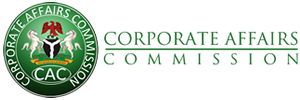,
The attention of the Management of the National Agency for Food and Drug Administration and Control (NAFDAC) has been drawn to publications in online tabloid, specifically the Business Day edition of 24th August 2023 titled “Nigeria’s Pharmaceutical Import drop 63% in Two Years”. While the write up quoted this data from the International Trade Center, a multilateral agency, laid claim to the fact that difficulty in accessing Forex, devaluation of the Naira, attendant high inflation has reduced imports, and this was also corroborated by the immediate past President of the Pharmaceutical Society of Nigeria. While this may be true, the full story was not captured.
The publication provided largely accurate statistics related to reliance on finished drug importation (about 70% of drug consumption), importation of Active Pharmaceutical Ingredients (100%), huge jump in prices of locally manufactured and imported drugs. The report provided a mixed bag of marginal revenue loss and increase for stakeholders in the Pharmaceutical Sector. In the report, it was not asserted that decline in pharmaceutical imports is partly due to increase in local production even though a lot of boosts in local manufacturing is currently taking place as will be emphasized in the following segments.
As a responsible regulatory agency, it is important that NAFDAC provides a rejoinder to the write up and bring up its perspective within the context of improving access to medicines by Nigerians, even though the Agency is not oblivious of the numerous challenges confronting the pharmaceutical sector in our country. At the recently concluded 74th World Health Assembly, the World Health Organization (WHO) emphasized on the need to strengthen local production of medicines and other health technologies to improve access. (https://apps.who.int/gb/ebwha/pdf_files/WHA74/A74_ACONF1-en.pdf).
The resolution by member countries emphasized that integration of local production into overall health systems strengthening can contribute to sustainable access to quality-assured, safe, effective, and affordable medicines and other health technologies, help to prevent or address medical product shortages, achieve universal health coverage, and the strengthening of national health emergency preparedness and response, as well as minimizing public health hazards.
At the inception of the current NAFDAC administration in November 2017 the overarching goal was to formulate and implement policies aimed at enhancing and promoting local production of pharmaceuticals. The Director General has emphasized this to promote access to quality, safe and efficacious medicines. She explicitly delivered this message at the National Association of Industrial Pharmacists Annual Meeting held in Ilorin in 2018. All these led to the formulation of a number of policies which are beginning to yield the expected outcome. Some of these policies include:
1) The Five + Five (5+5) Policy or Regulatory Directive (RD)
The 5+5 policy is aimed at migration of previously imported products (that can be manufactured locally) to local manufacturing after the last renewal of five years post the effective date of the RD, i.e., upon renewal of the previous five years before the RD date, the renewal for five years post the effective RD date is the last approval to import. By the end of the third year of that last renewal, the importer/manufacturer must present to NAFDAC a plan to migrate to local manufacturing or partner with an existing local manufacturer through contract manufacturing. The essence of this policy is to provide the Agency a strong foothold for enhancing local manufacturing and regulatory oversight aimed at improving access to medicines that meet the requirements for quality, safety, and efficacy.
It is a veritable means of curbing importation with the attendant influx of SF medicines into the country. Outcome of this policy showed that as of July 2023, a total of fifty-seven companies (representing about 30% of total number of local manufacturers) have provided the blueprint for migration to local manufacturing to the Drug Registration and Regulatory Affairs Directorate of the Agency. This migration is either to build and erect brand new Pharma manufacturing plants or enter contractual manufacturing partnerships with local drug manufacturers.
- Expansion of NAFDAC’s Ceiling list
This expansionist intervention is to reduce the importation of medicines that can be manufactured locally, thereby stimulating the utilization of idle capacity of local manufacturers of essential medicines. The ceiling had nine (9) products prior to 2020 but has now been increased to thirty-four (34). This has invariably led to decline in imports of products listed on the ceiling list.
3) The Policy on Establishment of New Pharmaceutical Plants in Nigeria
This policy enables companies to get their facility design right before commencing construction, all in a bid to eliminate potential for manufacture of SF medicines resulting from poorly designed manufacturing facilities. As of July 2023, A total of 57 and 18 new manufacturers, many of whom are importers have either received regulatory approval to erect new GMP compliant Pharma plant in Nigeria or have their layouts undergoing reviews respectively. This is in addition to the fact that 53 of existing local manufacturers have either obtained regulatory approval to build new plants or are currently undergoing regulatory reviews of their layouts. The implication of this is that as of July 2023.
This resurgence of deliberate intent to comply with extant regulatory requirements by importers and local manufacturers will no doubt translate to decline in pharma imports, notwithstanding the exit of fair-weather investors. It is also important to note that these approvals translate to millions of dollars (USD) as investment into the Nigerian economy.
4) NAFDAC Tariff Regime on Imported Products
This is one other intervention put in place to encourage local manufacture of essential medicines. The cost of registration of Imported drugs is several times higher than local products to further discourage drug imports.
5) International Certification and Risk Based Classification of Local Drug Manufacturers
Attainment of ISO 9001:2015 Standards and WHO Global Benchmarking of Maturity Level 3 (ML3) status presents any National Medicine Regulatory Authority as a functioning and stable regulatory Agency. The attainment of this status, coupled with risk based classification of local drug manufacturers by the Agency in May 2019 at the first instance, and subsequently in February 2022 is reverberating in that foreign investors and international procurement agencies are beginning to have increasing level of confidence in our regulatory oversight and patronage of made in Nigeria Products for Nigeria Public Health Programs as against importation of products to support domestic public health interventions. Recently, technical partners (e.g., UNICEF, UNITAID, UNOPS etc.) and sister agencies in Nigeria (e.g., National Health Insurance Authority, NHIA) have relied on NAFDAC’s oversight function to patronize local drug manufacturing concerns, justifying another reason for decline in imports.
It is in our humble opinion that inspite of the multitude of challenges confronting the local pharma industries in Nigeria, local production is the surest means of providing quickest access to quality, safe and efficacious medicines. This stance is further supported by the recent disclosure by the Special Adviser to the President (Salma Anas-Ibrahim) at a workshop in Nigeria to reduce importation of drugs in Nigeria to 40% as a means of bridging the gap in the health sector. The journey to achieve this lofty ideal, though a marathon, can be achieved in a very short time if all stakeholder and relevant government agencies in the country collaborate to change the narratives in favor of enhancing domestic production of pharmaceuticals.
NAFDAC………safeguarding the health of the Nation!!!
Director General






